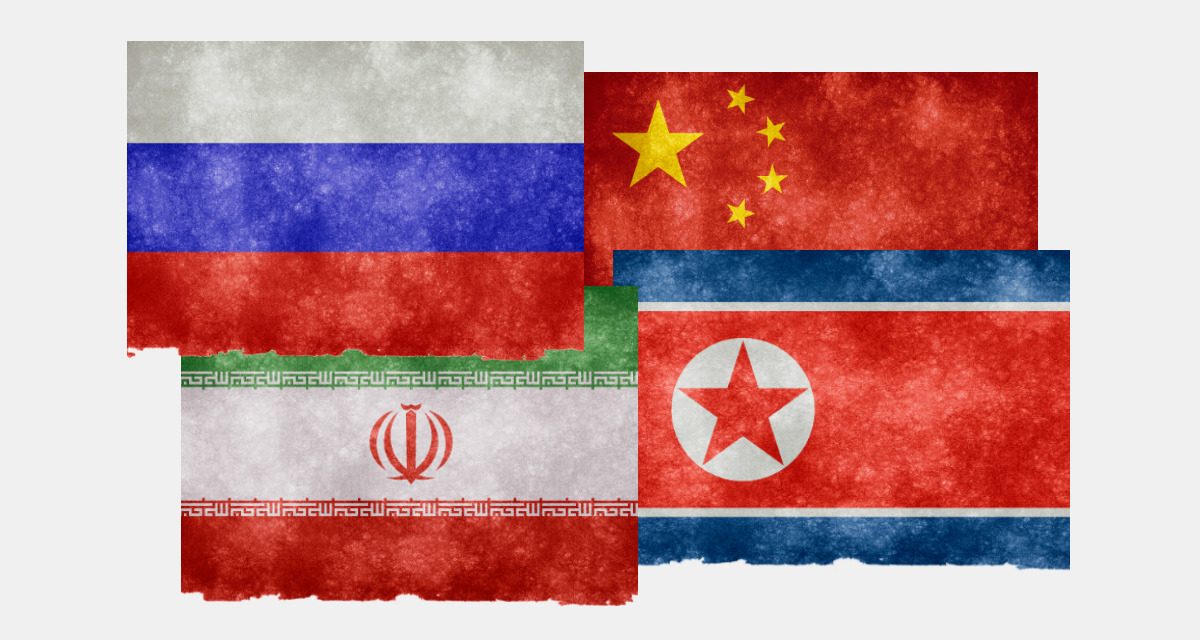In late October 2015, I was an Armed Services Committee staffer responsible for the Asia-Pacific and Middle East policy portfolios. We had just received word that the the Obama Administration conducted the first Freedom of Navigation Operation (FONOP) with the USS Lassen (DDG-82) that passed within twelve nautical miles of the Spratly Islands—including Subi Reef, which China claims.
After running down the stairs to the dungeon-like room in the bottom of the Rayburn House Office Building parking garage, my colleagues and I crowded around a small conference table to receive a briefing on the FONOP. All the usual suspects from DoD and State were there—including their lawyers. They proceeded to tell us about the Lassen’s FONOP, ensuring sufficient ambiguity about its specific purpose and trying with excruciatingly painful intellectual acrobatics to make a distinction between transiting via innocent passage and conducting a FONOP “consistent with innocent passage”—while, at the same time, avoiding any discussion on future FONOPs or how this particular one fit into overall US policy to address China’s land reclamation in the South China Sea. Until the very end.
At the end of this somewhat contentious briefing, one of the State Department briefers made a quip that told us everything we needed to know about US policy at that point. In response to a prickly question from one of my committee staff colleagues about what the United States was going to do about China’s estimated 3,200 acres of land reclamation in the South China Sea—never mind China’s militarization of these man-made “islands,” which include 10,000 foot runways, in an attempt to establish an anti-access area denial (A2AD) zone—the briefer responded: “It’s not like we’re going to go to war [to stop this].” Notwithstanding the fact that the briefer’s maximalist response failed to contemplate various, additional policy options between conducting FONOPs and all-out war, he said what we all knew. It’s not like we were going to “go to war” — it was below our threshold for response.
This briefing, and especially this one quip by the State Department official, revealed to me the challenge to regional order—and international rules and norms—across the globe. In short, many of the challenges we face due to the “rise of the revisionists,” are, perhaps paradoxically, too grave to ignore, yet too costly to resolve. What’s left is, at best, trying to manage out these regional problems and, at worst, leaving them unresolved, which has the effect of neutralizing US power and influence in the eyes of partners and allies in the region.
The result has been parallel power structures rising up across regions. In the absence of decisive and effective US regional power and influence, competition among regional powers opposing the United States’ partners and allies has emerged, often underwritten by Russia and China. And while US global power remains, it becomes less and less relevant over time because of our inability to play a decisive and influential role in effectively resolving regional crises.
The debate over the scope and nature of the challenge presented by revisionist powers—Russia, China, North Korea, and Iran—has been unfolding for a few years now. In a 2014 essay in a Foreign Affairs, “The Return of Geopolitics,” Walter Russell Mead asserted:
So far, the year 2014 has been a tumultuous one, as geopolitical rivalries have stormed back to center stage. Whether it is Russian forces seizing Crimea, China making aggressive claims in its coastal waters . . . or Iran trying to use its alliances with Syria and Hezbollah to dominate the Middle East, old-fashioned power plays are back in international relations.
Mead argued that Russia, China, and Iran did not accept the post-Cold War settlement, and while these “revisionist” actors have not overturned the post-Cold War order, “they have converted an uncontested status quo into a contested one.”
As a rejoinder to Mead’s Foreign Affairs piece, John Ikenberry argued that these actors are not “full-scale revisionist powers”—they are, at best, “part-time spoilers.” In any case, we are just now beginning to see the effects of this challenge.
For example, China is coercively presenting “new,” competing political and economic systems to actors in their region, saying, essentially, “embrace the Chinese way,” or else. Russia has been engaged in a similar effort for years, presenting a similar proposition to other states: “Do not turn towards Western institutions and systems,” or else. North Korea and Iran, for their part, have taken this regional, coercive approach to a whole new level—by holding population centers at risk through conventional weapon systems.
North Korea is doing this with a massive artillery capability, much of it near enough to the border with South Korea that the population in Seoul is well within range. The 12,000 tube artillery guns and 2,300 pieces of multiple-launch rocket artillery under the North Korean People’s Army Artillery Command could result in, according to a reported Pentagon estimate, 20,000 killed each day should war unfold on the Peninsula. No US military capability or system will be able to fundamentally change the reality of the potential death toll on the Korean Peninsula, at this point.
In the Middle East, Iran’s ballistic missile capability plays a similar role, holding at risk key facilities and population centers in the UAE and other Gulf Cooperation Council countries.
Again, the net effect in both cases is to establish a regional context that enhances their interests by operating below our threshold for response—thereby deterring the United States from taking decisive action and degrading our relative influence in the process.
So, what to do about all of this?
The United States should continue to build out our intelligence picture, regional missile defense, and our capabilities to hunt and destroy such conventional systems in these regions. But we should also contemplate new forms of deterrence against “below-threshold” approaches of such regional actors.
We can no longer exclusively rely on the retaliatory model of deterrence because the threat of retaliation does not sufficiently thwart any of these actors from probing the frontiers of Western “defenses” and influence (Russia in Crimea), reclaiming land to prevent freedom of navigation (China in the South China Sea), or holding population centers and other key facilities at risk (North Korea and Iran). These actions continue to fall below our threshold for response.
The result: revisionist states are fundamentally redefining regional power dynamics across the globe that may ultimately rewrite international rules and norms in their favor—de facto, de jure, and through pure force.
And so, as National Security Advisor Lt. Gen. H.R. McMaster reportedly contemplates a so-called “bloody nose,” “limited” military response to provocations and recent actions by the North Korean regime, perhaps we are beginning to see a shift towards engaging more decisively within the regional contexts, standing up for US interests, and punishing our adversaries rather than an exclusive focus on avoiding military confrontation. This approach is clearly risky, but so is what we have been doing.
Because if not—if that State Department briefer was right and it’s not like we’re going to go to war to confront our adversaries’ activities early and below our current thresholds for response—then we must either ready ourselves for the inevitable, more costly war in the future or be prepared to accept a new world order.
Image credit: freestock.ca (adapted by MWI)



The US has been at war 17 years in the middle east, and these Bozo's want to start another war in Korea1
Its not clear to me why Iran is supposedly revisionist. Exactly what aspects of the 'post-war order' is Iran supposedly trying to overturn? The UN? Peaceful resolution of disputes? International trade and banking? Its own borders? Iran is happy with all of these.
Though some maritime borders are disputed, Iran does not claim any territories outside its borders. And there are bordering regions with Farsi-speaking populations. An irredentist power would make noises about that but Iran does not.
Iran has not attacked another state since the 1700s. Though it was itself attacked as recently as 1980.
Iran does indeed seek to increase its influence in the region. It uses its spies and its proxy groups to advance its interest and sometimes to fight proxy conflict. So does every other global or regional power, including Russia, Saudi Arabia, Israel, Turkey and the USA.
Iran does not recognize Israel's right to exist, but then neither does much of the Arab world, including US client states such as Iraq, Kuwait, the UAE and Saudi Arabia. The US actually has bases on the territories of states that do not recognize Israel. So don't tell me that this is some kind of unforgivable diplomatic crime.
And as for nuclear weapons, the entire US Intelligence apparatus agrees that Iran gave up its nuclear weapons program at least ten years ago. Though even if it was still in existence, every state has a right to develop nuclear weapons. The only restrictions on a non-nuclear state becoming a nuclear one are voluntary. There is no international law that says some powers may have nuclear weapons but not others. Instead, we have an international treaty, signed by most nations, which states that the spread of nuclear weapons is a bad idea and that the signatories will work to prevent it. Iran is a signatory, by the way, but Israel is not. But any state may choose to defy the world and build a nuclear arsenal. When India and then Pakistan did so, the USA hardly said anything. So no, Iran is not trying to overthrow the non-proliferation regime either.
In the end it comes down to this: 49 years ago the Iranians overthrew the US-backed (and very nasty) Shah (who had himself been installed by a US-backed coup) and then held prisoner many of the US Embassy staff for over a year. Since then, the US has considered Iran one of its most hated enemies. Its time to get over old grievances and live in reality. In geostrategic terms Iran is a natural ally – a rival to Russia and to the Salafist Saudis. You want to talk about sponsoring terrorism? The Saudi government has been sponsoring the most extremist and violent Islamist schools all over the muslim world for our entire lifetimes. Iran does not do that, and in fact its state version of Islam is a rather benign one, as they go.
Iran not a nice state, to be sure. But it is no worse than many US clients, and considerably more tolerant, more cosmopolitan and more democratic than most Arab states that the US considers friends.
So no, Iran is not revisionist.
Russia, China, Iran and North Korea are forming a different currency. This will damage the Petro dollar. They are also against a New World Order. Wake up!!!! War has and always will be a political and economic means to justify an end. I see plans within plans with NATO. There are those with the real power who are funding both sides in this standoff. It’s always the same players . There was a day I was proud to be American. Now… I’m embarrassed and mostly disgusted. Only the Kingdom the Bible reveals will crush and destroy this sick world as Jesus is the King . It’s all either the muses of mere men or prophecy. One of the last true rights we have today is making up your own mind, I suggest you practice this last true right. Before it’s decided for you.
COMMENTmanMan, I am an Iranian and I speak on behalf of my government, the only thing Iran wants is the lifting of sanctions, the freedom of Palestine, better relations with other countries and revenge on the countries that hurt it.